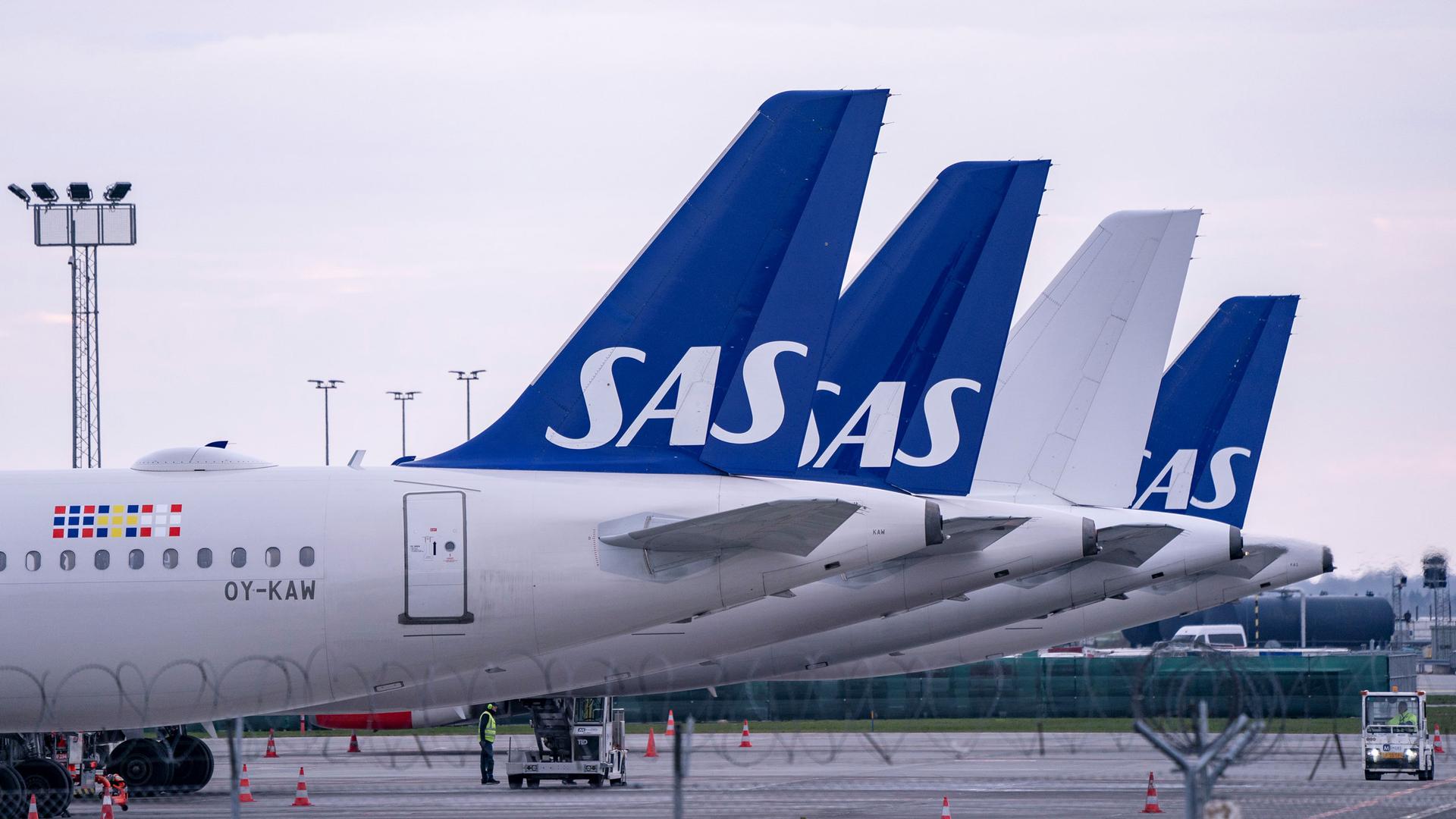Scandinavian Airlines Airbus A320 planes are parked at Copenhagen airport in Kastrup, Denmark, March 15, 2020.
The Australian government said it would refund and waive charges to airlines such as domestic air traffic control fees worth $430 million, including more than $93 million upfront, as it advised citizens against all foreign travel because of the coronavirus pandemic.
Australia joined several other governments offering financial aid to airlines as coronavirus and stricter travel controls forced carriers to deepen cuts to capacity and staffing.
US airlines have asked Washington for $50 billion in grants and loans, plus tens of billions in tax relief. Sector executives are due to speak with US President Donald Trump by phone on Wednesday.
Boeing has called on the US government to provide at least $60 billion in access to liquidity, including loan guarantees, for the aerospace manufacturing industry as airlines halt deliveries and new orders to conserve cash.
Airbus has also signaled some government support may be needed if the coronavirus crisis lasts for several months.
Taiwan’s civil aviation regulator said late on Tuesday that its airlines could apply for subsidies and loans backdated to Jan. 15.
Sweden and Denmark on Tuesday announced $300 million in loan guarantees for Scandinavian carrier SAS.
El Al Israel Airlines on Wednesday said it had sent 5,500 of its 6,000 workers on unpaid leave until May 31 after it slashed its flight schedule.
The outbreak of the flu-like virus has wiped 41%, or $157 billion, off the share value of the world’s 116 listed airlines, with many using up their cash so fast they can now cover less than two months of expenses, a Reuters analysis showed.
The International Air Transport Association representing the sector said $200 billion in government support could be needed worldwide.
Trump said on Tuesday that travel restrictions within the United States are being considered, which would be a further blow to its domestic carriers.
“You can do a national lockdown. Hopefully, we’re not going to need that,” Trump said. “It’s a very big step.”
US airlines are seeking to quickly reduce their workforces through unpaid leave of up to 12 months with medical benefits or early retirement packages in a sign carriers do not expect a quick rebound.
Global passenger numbers are expected to fall by as much as 30% this year with a full recovery not likely until 2022 or 2023, S&P Global Ratings said.
“At the risk of being alarmist, the airline industry is on the brink of collapse as governments are quarantining large portions of their populations and closing off borders,” Cowen analyst Helane Becker told clients.
Cuts get deeper
The situation has worsened for airlines this week as governments have tightened travel restrictions.
United Airlines Holdings said it would cut 60% of its capacity in April, including 85% of its international flights.
Air New Zealand on Wednesday suspended trading for another two days to assess the financial implications of deep capacity cuts announced on Monday.
“This is going to be quite tough as we forecast the volumes that we are looking at over the next few months,” CEO Greg Foran said in a video sent to reporters.
Up to 30% of the airline’s 12,500 staff will not be required, he said, adding that the carrier would offer leave without pay and voluntary redundancies before moving to job cuts.
Qatar Airways laid off around 200 employees, all Filipino nationals based in Qatar, Philippine Labour Secretary Silvestre Bello told Reuters.
Volumes plunge
Auckland International Airport in New Zealand said international passenger volumes on Monday were 44% lower than a year ago.
Australia’s Qantas Airways on Tuesday announced plans to cut 90% of international capacity and its Singapore-based low-cost airline Jetstar Asia said it would stop flying altogether for three weeks from March 23 to April 15.
Australia’s No. 2 carrier, Virgin Australia Holdings, said it would suspend all international flying from March 30 to June 14 and cut its domestic capacity in half, in a move that could lead to job losses.
Singapore Airlines plans to halve its capacity through the end of April, with further cuts possible as it braces for a “prolonged” period of difficulty.
“Make no mistake — we expect the pace of this deterioration to accelerate,” CEO Goh Choon Phong said in a statement on Tuesday.
By Jamie Freed and Tracy Rucinski/Reuters
Our coverage reaches millions each week, but only a small fraction of listeners contribute to sustain our program. We still need 224 more people to donate $100 or $10/monthly to unlock our $67,000 match. Will you help us get there today?
